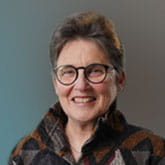The first two community health centers (CHCs) were established in December of 1965 in Mound Bayou, Mississippi and Columbia Point, Boston when Drs. Gibson and Geiger launched a small demonstration project as part of an initiative begun by president Johnson’s Office of Economic Opportunity. These clinics were established to evaluate a model for providing health and social services in poor and underserved communities.
The growth of the CHC model has been nothing short of remarkable, today there are nearly 1,400 health centers operating 12,000 service sites. According to the Health Resources and Services Administration (HRSA) more than 28 million people, or one in 12 people nationwide rely on a CHC for affordable, accessible primary care. Among the millions of patients who receive their care in CHCs are the most vulnerable populations in the U.S. One in nine children 17 years or younger, one in five people living in rural communities, one in three people living in poverty and more than 385,000 veterans. Review of the growth CHCs have experienced since 2000 reveals that the number of patients served by them has nearly tripled in this period of time.
The growth in CHCs is in part a reflection of a vast societal need, but first and foremost it is a powerful tribute to the success of this model of care. CHCs have consistently shown improved patient outcomes while achieving these outcomes at a lower cost when compared to the cost of care of non-CHC patients. According to a HRSA fact sheet, 67 percent of health center patients with diabetes controlled their blood sugar levels (HbA1c < 9), exceeding the national average of 60 percent. Sixty-three percent of health center patients with hypertension controlled their blood pressure, exceeding the national average of 57 percent. In addition to better patient outcomes, the health center model of care is associated with reductions in emergency department use and hospital admissions. Health center patients also had 24 percent lower spending as compared to non-health center patients across all services.
CHCs once regarded as healthcare’s “safety net” are today uniquely positioned to become healthcare’s leader by providing a sustainable, high quality, financially efficient care model that could apply to all primary care, not only the primary care of underserved socioeconomically challenged communities.
Traditional primary care could benefit greatly from elements of the CHC model such as seamless integration of behavioral health into the primary care office and workflows that CHCs have achieved. To this point, 93 percent of health centers offer mental health counseling and treatment and 67 percent of health centers provide substance use disorder services. CHCs governance models have long included a requirement that 51% of board seats be assigned to members of the community that receive care at the health center. Traditional primary care practices have struggled to incorporate the voice of the patient even in successful implementations of patient centered medical homes. With many CHCs diverging from the traditional FQHC reimbursement framework, shifting to a variety of advanced payment models, there is great opportunity for successful CHC workflows and approaches to be more widely disseminated in non-CHC settings. The COVID-19 pandemic has brought out the best in CHCs, demonstrating remarkable creativity, resilience, and commitment to the communities they serve.
On July 21, NextGen Healthcare will be hosting a webinar titled: “How Community Health Centers Can Lead the Way in a New Era of Healthcare.” Based on recent past, it would probably have been appropriate to title the webinar: How Community Health Centers Can Continue to Lead the Way in a New Era of Healthcare. Click here to register for webinar.
Meet NextGen Ambient Assist, your new AI ally that generates a structured SOAP note in seconds from listening to the natural patient/provider conversation.
Read NowCategories
- Analytics and Reporting
- Regulatory Updates
- Artificial Intelligence (AI)
- Community Health
- COVID-19
- Dental
- Documentation
- Electronic Health Records
- Financial Management
- Health IT 101
- Industry news
- Integrated Care
- Interoperability
- Mobile EHR
- NextGen Advisors
- Patient Experience
- Practice Management
- Provider Experience
- Patient Engagement
- Population Health
- Revenue Cycle Management
- Small Practice
- Telehealth
- Value-based Care
